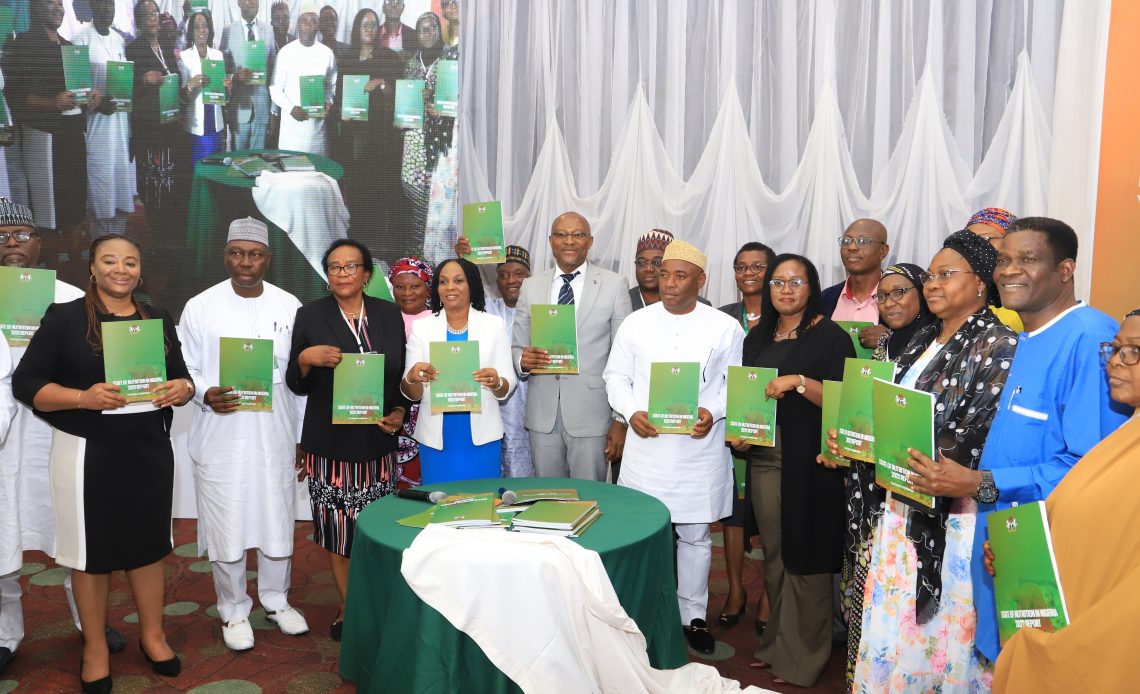By Beti Baiye and Dabri Olohije (Lead Writers)
Nigeria boasts abundant food production capacity, capable of sustaining the entire population. However, despite its agricultural strength, the nation struggles to provide every citizen, particularly children, access to a well-balanced diet and essential nutrients. The Nigerian government has made several efforts to address the country’s nutrition challenges. Although these interventions have not yet achieved their desired results due to the failure to scale up implementation or insufficient financing, the government has remained committed to finding the best approach to address the nation’s nutrition challenges.
The ANRiN Project
The Accelerating Nutrition Results in Nigeria (ANRiN) project is a state-led and World Bank-funded project which aims to increase the utilisation of quality, cost-effective nutrition services for pregnant and lactating women, adolescent girls and children under five years of age. The project, which commenced in 2018 and is expected to end in December 2023, is being implemented in 12 high malnutrition burden states — Abia, Akwa Ibom, Gombe, Kaduna, Kano, Katsina, Kogi, Kwara, Nasarawa, Niger, Oyo and Plateau State.
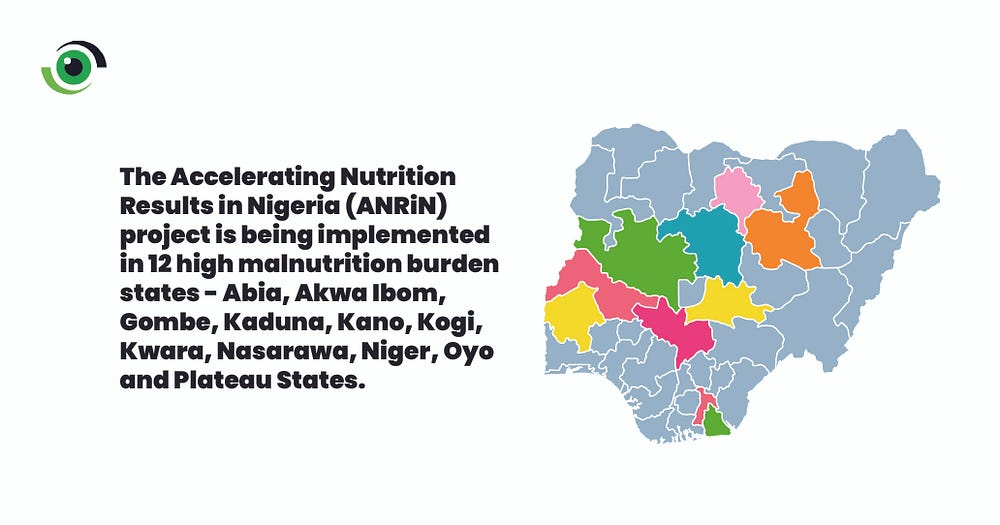
Annually, stakeholders, including government officials, policymakers, representatives from non-governmental organisations (NGOs), researchers, and community members, come together to discuss the impact of the project’s interventions on nutrition outcomes across the country. In July 2023, the Federal Ministries of Finance, Budget and National Planning, Health and the National Primary Health Care Development Agency (NPHCDA) hosted the third edition of the conference, which was themed, ‘Boosting the Gains of Accelerating Nutrition Results: Leveraging from Innovative Approaches’. The aim was to reflect on the project’s journey, achievements, and lessons learned, showcase technological innovations, identify solutions to challenges, and launch the Nigeria State of Nutrition Results for 2022.
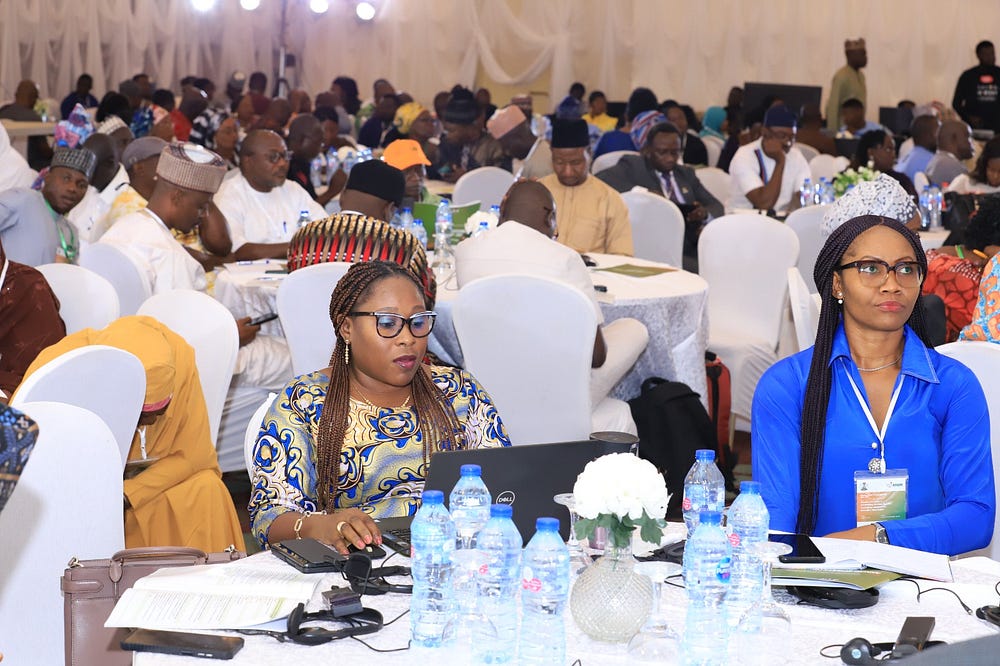
The sub-themes of the two-day conference focused on: Scaling up Nutrition interventions and innovations in Nigeria and Innovative approaches to strengthening systems for a sustainable whole-of-government response.
Scaling up nutrition interventions and innovations in Nigeria: trends, opportunities and challenges for sustainability
In her opening statement, Mrs Chito Nelson, Head of Nutrition and ANRiN Focal Person, Federal Ministry of Finance, Budget and National Planning, said, “With a staggering $232 million financial facility, the ANRiN project stands as the largest and most effective nutrition flagship programme in Nigeria. It has made a significant impact on nutrition governance and coordination, particularly within the Federal Ministry of Finance, Budget, and National Planning”.
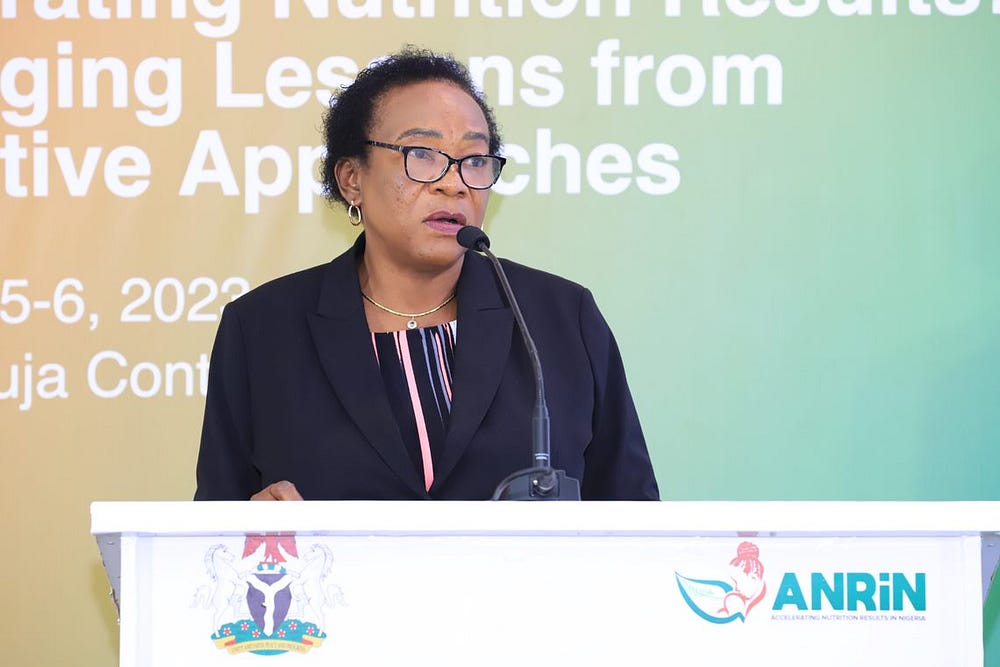
Dr Ojuolape Solanke, National Programme Manager, ANRiN, gave a presentation on ANRiN’s journey. Discussing its two components: Delivery of a basic package of nutrition services and Stewardship and Project Management, she revealed that “over 10 million beneficiaries have been reached, with over 9 million beneficiaries served through the implementation of various nutrition services”. Sharing critical lessons from the project, Dr Solanke emphasised the importance of engaging all stakeholders, creating referral pathways to enhance service delivery effectiveness, ensuring regular supportive supervision of community volunteers, and leveraging existing services and programmes to reach mothers and children.
She also discussed the challenges faced during the project implementation. These encompassed security challenges, rugged terrain, poor food networks, difficulties in accessing adolescent mothers, peer pressure, staff attrition, and technical challenges with the ANRiN Mobile app, particularly in data collection. On the next steps, Dr Solanke outlined several key priorities, which included building capacity among religious leaders, conducting advocacy at the state and national levels, establishing a nutrition department within line ministries, promoting ANRiN’s legacy, and supporting and promoting coordination among line ministries.
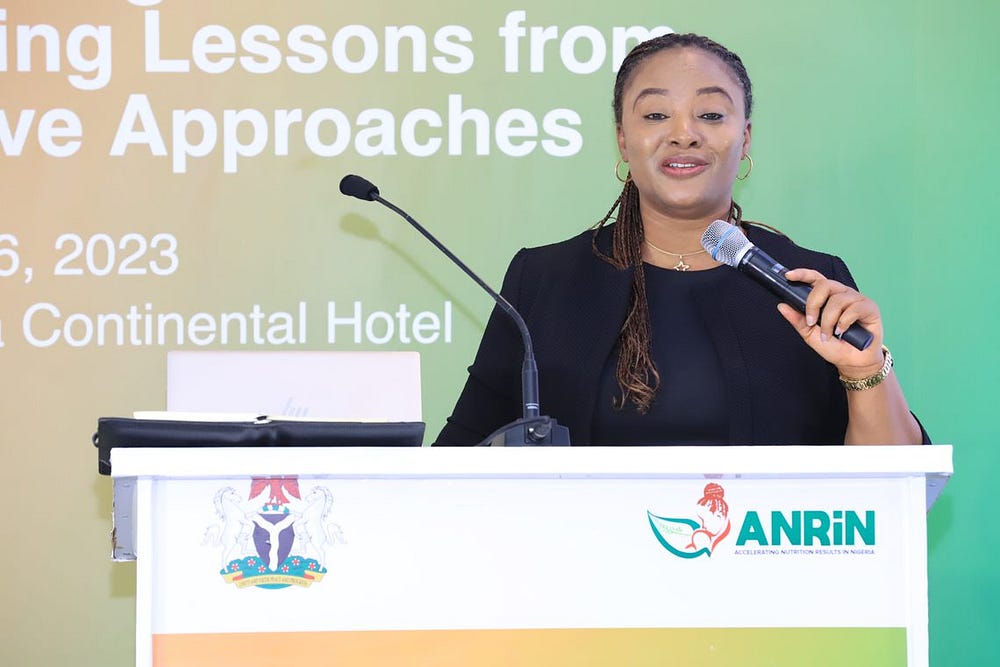
Several other presentations followed, showcasing the diverse and creative approaches adopted to address nutrition challenges effectively and achieve positive outcomes in various aspects of the project. The ANRiN System, an integration of mobile and web applications, is a tool for recording client enrolment, tracking beneficiary services, and reporting service delivery. It addresses challenges in data collection systems by enabling near real-time data collection from service providers.
The ANRiN Peer Learning Collaborative brings together government representatives, implementers, practitioners, civil society, and others to improve nutrition-related outcomes through joint problem-solving, sharing best practices, and learning from one another. It consists of presentations, thematic group discussions, and capacity-building sessions. Recommendations include integrating virtual sessions and replicating the collaborative learning model in existing annual nutrition convenings to ensure its sustainability.
The State of Nutrition Report 2022–2023
Engineer Nebeolisa Anako, Permanent Secretary, Federal Ministry of Finance, Budget and National Planning, launched the State of Nutrition Report (2022–2023). Describing it as the “peak of the event,” he said the report provided a comprehensive assessment of Nigeria’s current state of nutrition. It is a valuable tool for identifying areas requiring governance, investment, and policy updates to drive meaningful change.
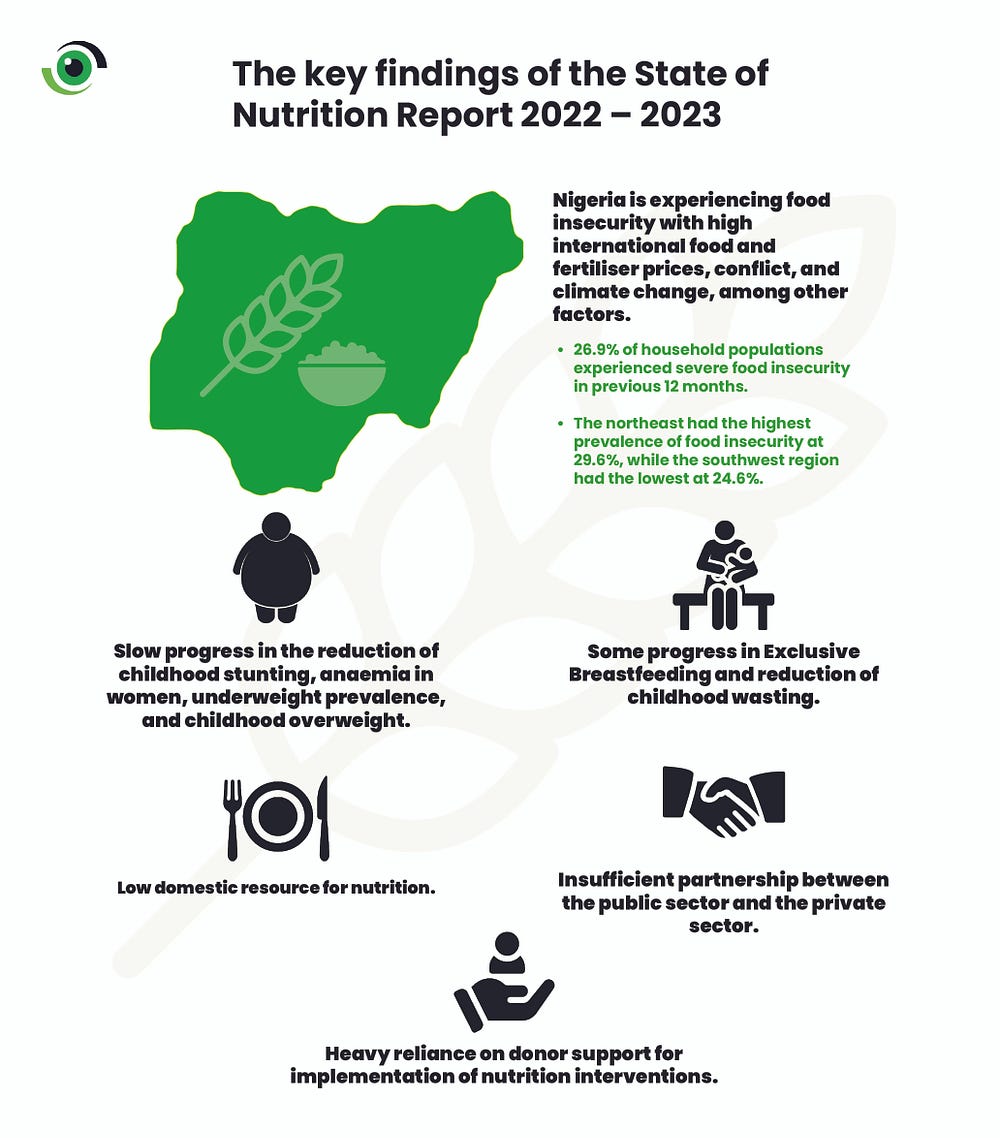
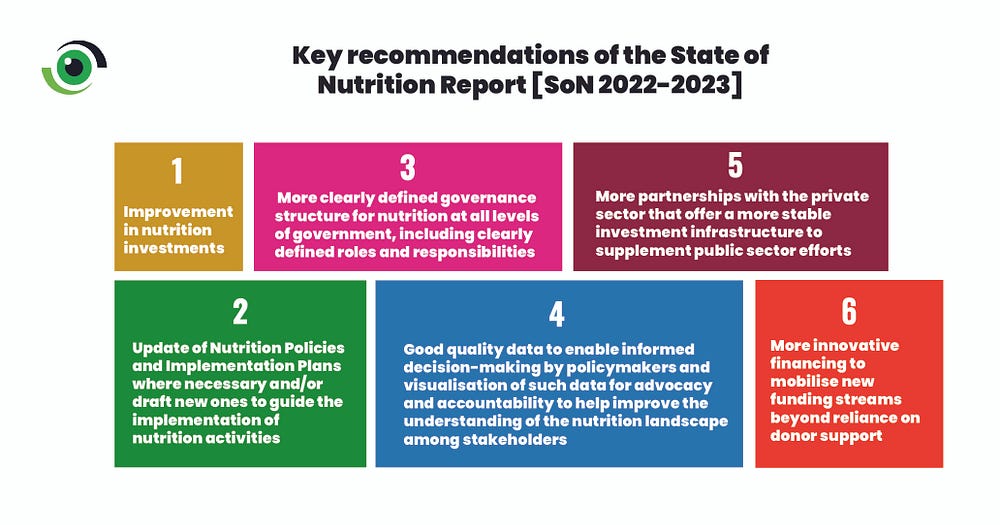
Innovative approaches to strengthening systems for a sustainable whole of government response
Kicking off the conversation on the second day, Mrs Chito Nelson presented the results of the innovative “Pilot of Multi-Sectoral “Pilot of Multi-Sectoral Co-Convergence Programming”. The “Nutrition-Sensitive” and “Nutrition-Specific” initiatives are being coordinated by the Federal Ministries of Agriculture and Rural Development (FMARD), Education (FMoE), Health (FMoH) and Women Affairs, and the National Cash Transfer Office.
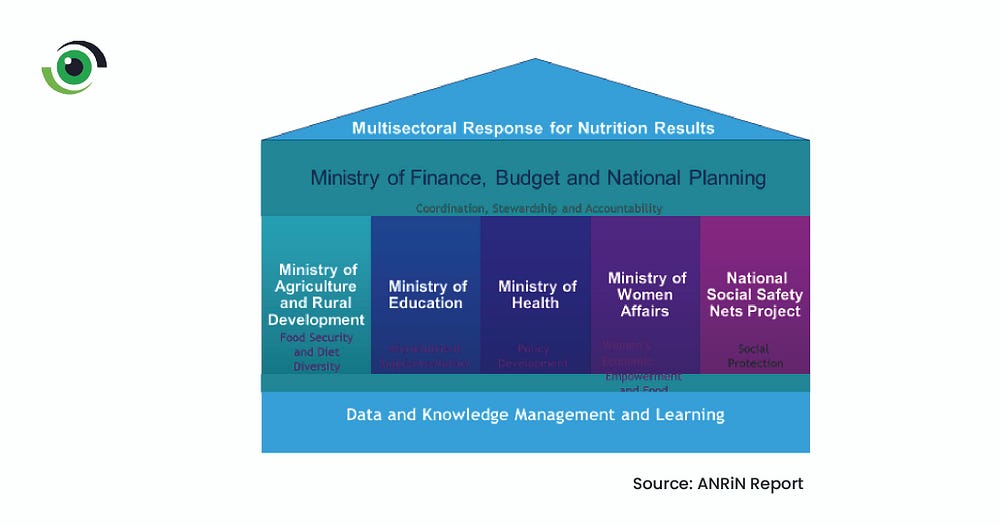
Mrs Nelson revealed that 5,882 households representing 41% of poor and vulnerable households, benefited from at least one nutrition-related service, with the highest and the lowest coverage in Yalmatu-Deba and Balanga Local Government Areas (LGA), respectively. “In Gombe State, this convergence programming has been observed to be working in terms of achieving the expected outcomes,” she said, stating that the hope is to achieve sustainability and scale up the programme in the state and encourage state actors to share their learnings with other states to cascade it to other places.
Day two also provided an avenue to discuss critical issues to enable nutrition-sensitive interventions for accelerated impact.
The first panel session aimed to obtain diverse perspectives on multi-sectorial collaboration. The session featured lessons learned from four nutrition actors on their different experiences implementing nutrition intervention. Dr Ishiyaku Mohammed, Special Advisor to the Governor on Budget, Planning and Development Partners Coordination, Gombe State, shared how the exemplary performance witnessed in the state could be linked to having clearly defined roles for all sector players. He mentioned that effective communication is critical to ensuring the success of any project, adding that “programmes are inefficient if sector players don’t communicate effectively”. Mrs Nelson echoed Dr Ishiyaku’s point on communication, adding that although the mandates of sector players are different, there are often overlapping activities. She advised that for effective coordination, all stakeholders involved should learn to lean forward or backward to accommodate everyone.
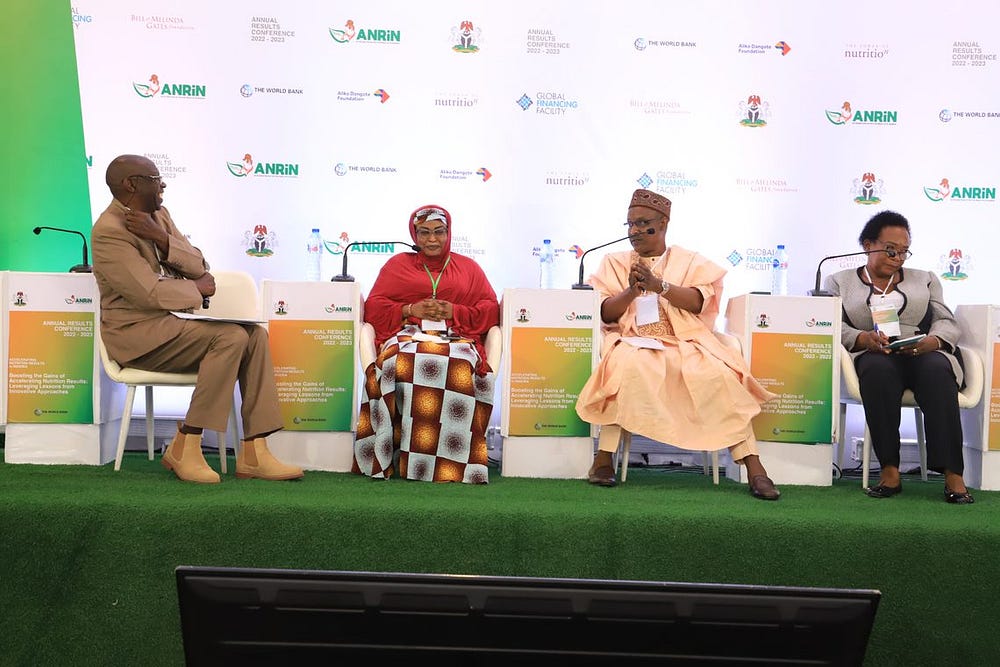
The ANRiN project, just like similar multisectoral projects, experienced a few challenges in achieving coordination. In his presentation, Dr Iorwa Apera, Country Director, FHI 360, provided recommendations for achieving sustainability and coordination. He stressed the importance of engaging the government and partners as leaders and owners of the initiatives, involving them from the initial stages of project design and proposal writing to retain knowledge and capacity for long-term impact. Dr Apera further emphasised the importance of engaging local volunteers to retain knowledge capacity. “We recognise the immense value that community volunteers, community health workers, and government partners bring to the table,” he said.
The second session discussed the importance of supply chains within nutrition programmes. Dr Demilade Osoteku, who represented Dr Abdulateef Salisu, Partner, Solina Health, elaborated on the multiple hiccups experienced in procuring Micronutrient powder (MNP). Some of the challenges were issues such as obtaining National Agency for Food and Drug Administration and Control (NAFDAC) waivers, high administrative costs, and low manufacturers’ capacity. He also shared key insights from his experience managing the supply chain for micronutrient powder, including strengthening local manufacturing capacity, collaborating with the private sector and quantifying demand and supply market shaping efforts to foster continuous production.
The final panel brought all the conversations together by discussing tactics to ensure funding for nutrition interventions. Honourable Dr Tanko Yusuf Sununu, immediate past Chairman House Committee on Health, Federal House of Representatives, stated that having a committee on nutrition at the House of Representatives would enable better oversight and coordination among various ministries and agencies involved in addressing nutrition challenges. He said, “While there may not be a specific committee on nutrition currently, the issue of nutrition is a national concern that requires the attention of a dedicated body”. The importance of innovative financing options beyond one-time solutions was also discussed. The speakers suggested exploring sustainable approaches to financing nutrition interventions in Nigeria.
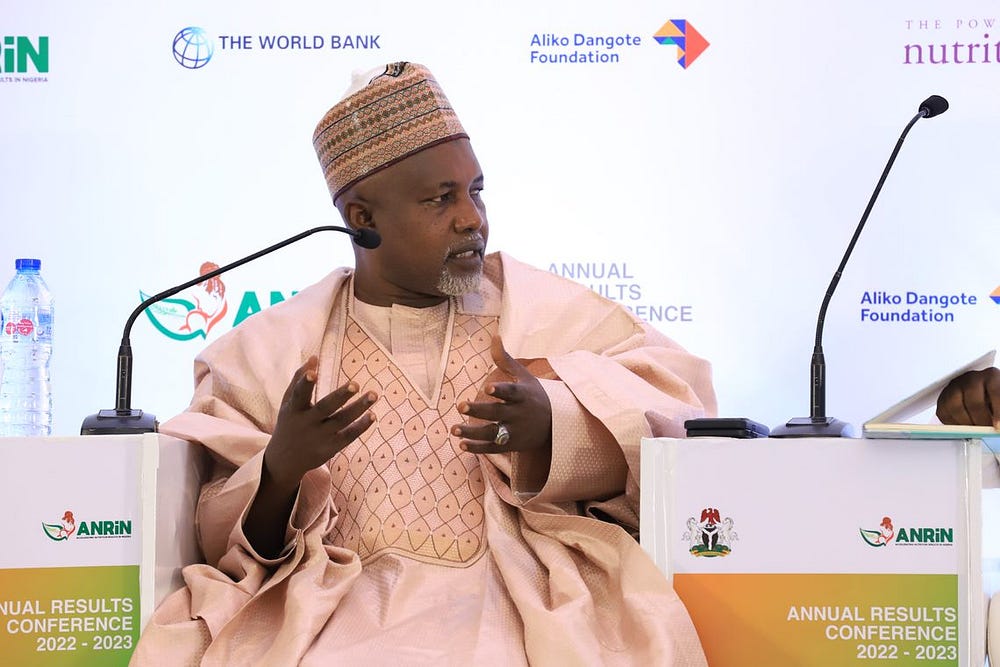
Beyond ANRiN
Learnings from the conference indicated that the ANRiN project has effectively addressed nutrition challenges in focus states and should be extended beyond its December 2023 end date. By extending the project, its positive impact on food security, nutrition outcomes, and the population’s overall health can be further reinforced and expanded. According to Dr Ogechi Akalonu, Head of Nutrition National Primary Healthcare Development Agency, “These projects have proven effective and will continue to yield positive results, thereby warranting the need for an extension.”
Overall, extending the ANRiN project in Nigeria is a strategic investment in the nation’s future, ensuring that nutrition-sensitive agriculture and related initiatives continue to make a positive and sustainable impact on the health and well-being of its population.


